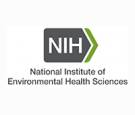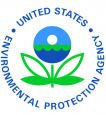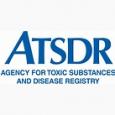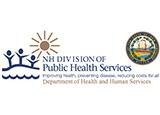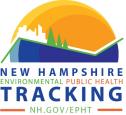Your Health and the Environment
Assessing the health impacts of toxic chemicals in the environment.
 Environmental health refers to the relationship between the environment, whether natural or man-made, and the health of people and their communities. This includes the air we breathe, the water we drink and the land and soils on which we build homes and recreate.
Environmental health refers to the relationship between the environment, whether natural or man-made, and the health of people and their communities. This includes the air we breathe, the water we drink and the land and soils on which we build homes and recreate.
The Environmental Health Program specializes in evaluating how people are exposed to harmful chemicals found in their environment, as well as the health impacts of these exposures. Where chemical exposures present significant risks to human health, the Environmental Health Program makes recommendations to reduce those risks and educate stakeholders.
The Environmental Health Program is staffed by risk assessors, toxicologists and public health specialists who assist NHDES and other state agencies in addressing health concerns and aiding in regulatory decision making. The Environmental Health Program’s technical assessments evaluate the public health risk(s) associated with exposure to toxic chemicals, which are used for risk characterization and risk communication.
Staff work in several program areas including: preparation of public health assessments and health consultations; review of site-specific regulatory risk assessments, assessment of drinking water contaminant health impacts, reviewing and setting ambient air limits for toxic air pollutants, and environmental health education.
Reducing Chemical Exposures in Your Daily Life
People can be exposed to harmful chemicals in a variety of ways; however, there are steps that can be taken to reduce exposure. These videos and factsheets were developed to help people understand how they might come into contact with harmful chemicals in the environment, and how to prevent or reduce exposure.
Health Topics
 The Environmental Health Program staff evaluates the risks of naturally occurring and man-made chemicals detected in drinking water supplies. This work assists NHDES regulatory staff and private environmental consultants with investigation and remediation of sites with contaminated groundwater.
The Environmental Health Program staff evaluates the risks of naturally occurring and man-made chemicals detected in drinking water supplies. This work assists NHDES regulatory staff and private environmental consultants with investigation and remediation of sites with contaminated groundwater.
The program also develops health-based recommendations for new drinking water standards, revises existing water quality standards and provides updated fact sheets summarizing health information about drinking water contaminants.

Fish and shellfish are a good source of lean protein and contain nutrients like omega-3 fatty acids, a key nutrient for brain development. See the Fish Consumption Advisory Fact Sheet for the most recent fish consumption guidelines concerning certain contaminants that have been found in fish tissues in various water bodies in the state.

Toxic air pollutants are pollutants that are suspected of causing cancer or other serious health conditions, or causing adverse environmental impacts. The pollutants are also referred to as "air toxics" or "hazardous air pollutants" (HAPs).
The Air Toxics Control Program was established in 1987 to help promote the health of New Hampshire residents and preserve the environment. This state-level program is designed to reduce the emissions and ambient air impacts of a number of toxic air pollutants likely to be emitted by businesses and industries in the state.
Health assessments, health consultations and site-specific risk assessments
Where NHDES or other New Hampshire state agencies have concerns about local environmental exposures to chemicals or other environmental hazards, the Environmental Health Program also conducts public health assessments, public health consultations and site-specific risk assessments.
- Public health assessments investigate releases from hazardous waste sites to understand risks of exposure and potential health effects. These assessments are conducted following guidance from the Agency for Toxic Substances and Disease Registry (ATSDR) and EPA, and in collaboration with other state agencies such as the Department of Public Health Services (DPHS). These assessments evaluate exposures to multiple chemicals from multiple pathways of exposure (e.g. inhalation, ingestion, skin contact). The data from public health assessments are used to recommend exposure prevention, environmental health education or additional study for a certain community.
- Public health consultations focus on a specific question about exposure to environmental hazards. These consultations are conducted following guidance from the ATSDR, and in collaboration with other state and federal agencies. Public health consultations are not medical exams, formal scientific studies, or public health assessments. The data from public health consultations are used to rapidly answer specific and defined questions about chemical exposure(s).
- Site-specific risk assessments evaluate the current or future probability of adverse health effects from chemicals released by a specific location/site or source of pollution. These may be conducted by the Environmental Health Program, or prepared by a responsible party and reviewed by the Environmental Health Program staff. This type of assessment is conducted in a manner consistent with scientifically acceptable practices adopted by NHDES and EPA.
Education and outreach are key to increasing public awareness about the links between the environment and human health. The Environmental Health Program staff take an active role in providing information on how chemicals in our environment can impact health, and in helping to identify and address community concerns related to environmental health and chemical exposure.






